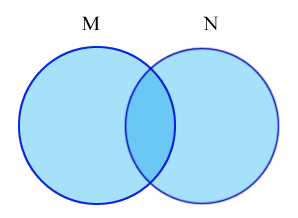UNION is used to combine the result from multiple SELECT statements into a single result set. The column names from the first SELECT statement are used as the column names for the returned. Selected columns listed in corresponding positions of each SELECT statement should have the same data type.
The default characteristic of UNION is, to remove the duplicate rows from the result. The DISTINCT keyword which is optional does not make any effect, because, by default, it specifies duplicate-row removal. It removes duplicate rows between the various SELECT statements.
Each SELECT statement within the UNION operator must have the same number of fields in the result sets with similar data types. It returns all rows from the query and it does not remove duplicate rows between the various SELECT statements. Basically, the UNION is looking for two complete SELECT statements to combine, and the WHERE clause is part of the SELECT statement.

SELECT columns do not match, the types and lengths of the columns in the UNION result take into account the values retrieved by all of the SELECT statements. To use this UNION clause, each SELECT statement must have. The same number of columns selected.
Have them in the same order. Using union and order by clause in mysql. The first select query returns data related to the exact place search. The 2nd select query returns data related to distance within kms from the place searched. The 3rd select query returns data related to distance within 5-kms from the place searched.
The more tricky case is where you have an OR condition that involves two different columns. SQL: UNION ALL Operator. This SQL tutorial explains how to use the SQL UNION ALL operator with syntax and examples.
It does not remove duplicate rows between the various SELECT statements (all rows are returned). As you will see the final ets will differ, but there is some interesting info on how SQL Server actually completes the process. The UNION ALL command is equal to the UNION comman except that UNION ALL selects all values. The difference between Union and Union all is that Union all will not eliminate duplicate rows, instead it just pulls all rows from all tables fitting your query specifics and combines them into a table. Combine , sort, remove duplicates and return the set.
Queries with UNION can be accelerated in two ways. Switch to UNION ALL or try to push ORDER BY, LIMIT and WHERE conditions inside each subquery. Introduction to SQL MINUS operator. The MINUS operator is one of three set operators in the SQL standard that includes UNION, INTERSECT, and MINUS. You want to create all employees details in a single result set by merging all columns from the two tables.
The following figure shows how to merge two tables into a single result set. Note: In the figure above we have two tables with the names oldempdtl and newempdtl. The oldempdtl table consists of employee data like id name. Unions are used to retrieve records from multiple tables or to get multiple record sets from a single table. It was driving me crazy thinking that was some problem of access.
I tested to union just two Selects, and running the entire query on mysql , etc. Select and one Union ) in msaccess using myodbc to connect to the mysql server. UNION ALL - Includes duplicates.
UNION - Excludes duplicates. A UNION operation is different from a JOIN: A UNION concatenates result sets from two queries. But a UNION does not create individual rows from columns gathered from two tables. A JOIN compares columns from two tables, to create result rows composed of columns from two tables. If the queries to union are very different, you might encounter a situation where an output field must combine data of different data types.
MySQL : INTERSECT Operator. If so, the union query most often will return the as a text data type since that data type can hold both text and numbers.
Geen opmerkingen:
Een reactie posten
Opmerking: Alleen leden van deze blog kunnen een reactie posten.